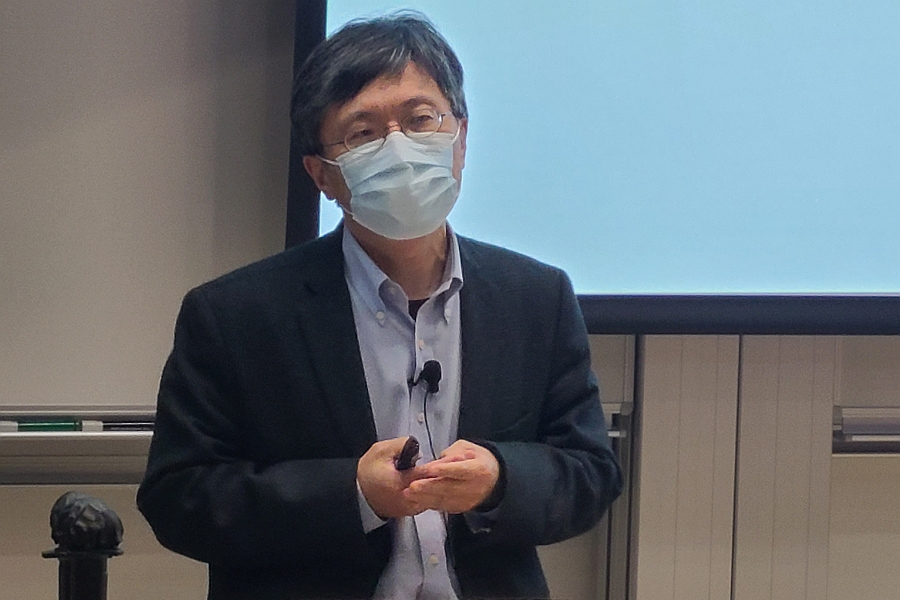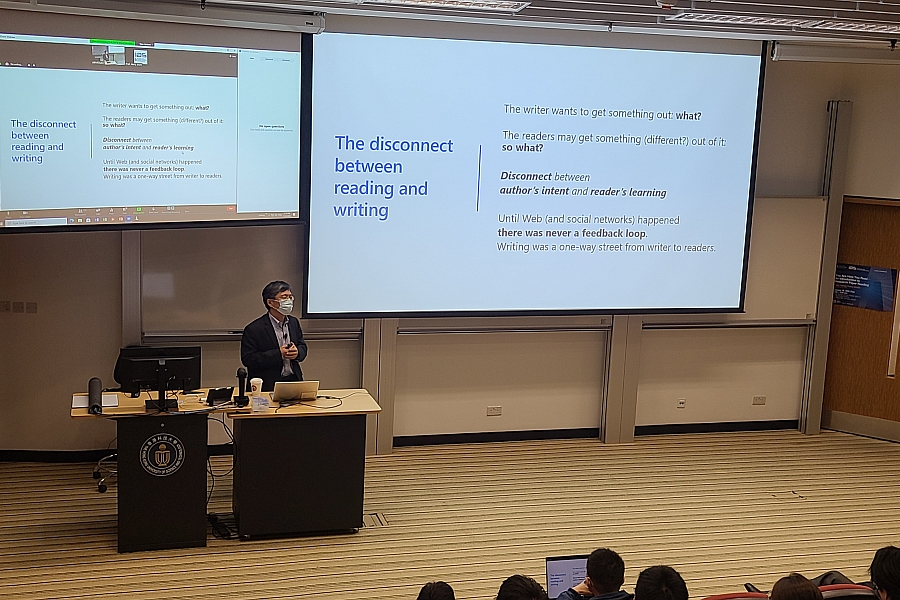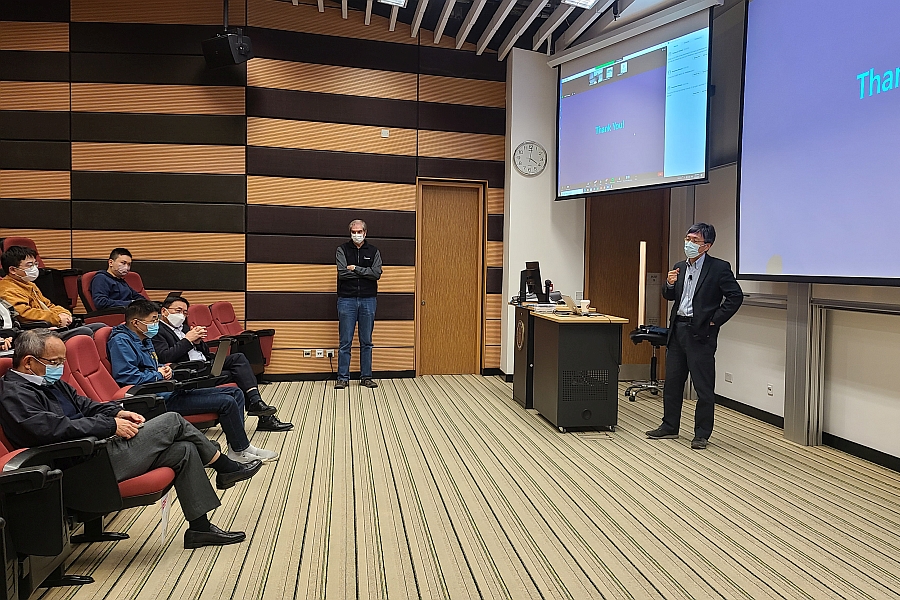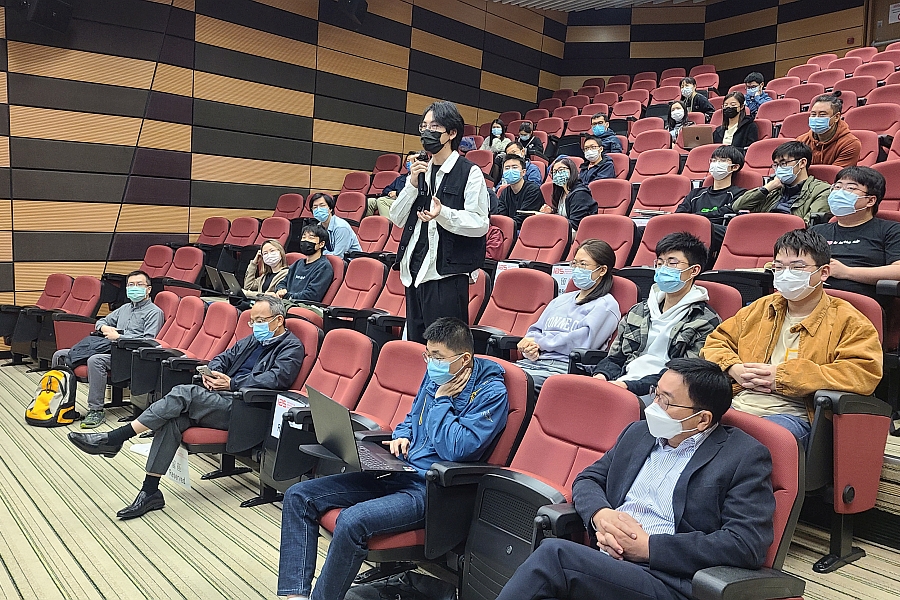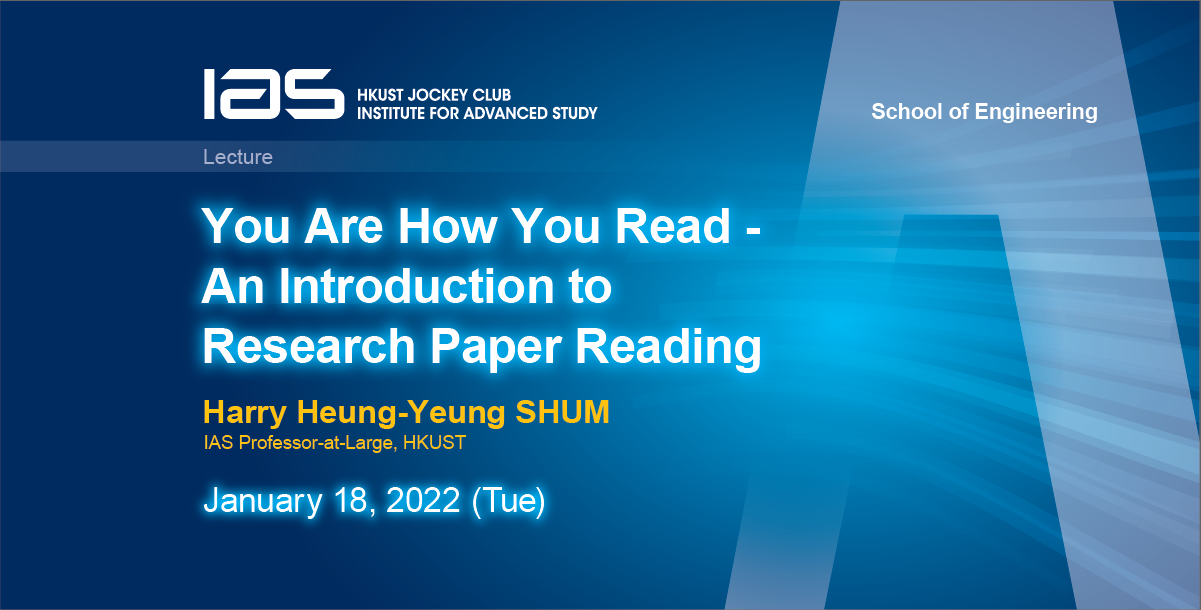You Are How You Read - An Introduction to Research Paper Reading
For Attendees' Attention:
This lecture will be held physically at the IAS Lecture Theater and online via Zoom. Onsite seating is offered to those who have access right to HKUST Clear Water Bay Campus only. Other interested parties please join the lecture online via Zoom.
- To join the lecture in person: No registration is required. Seats are limited and will be given on a first-come-first-served basis.
- To join the lecture online: Please join the webinar at https://hkust.zoom.us/j/91871447771.
Abstract
"We are not only what we read," says Maryanne Wolf, a developmental psychologist at Tufts University. "We are how we read." In this lecture, the speaker will introduce some practices for reading scientific research papers efficiently and effectively, from quick skimming to deep reading. A paper is a channel to communicate information (message) between source (writer) and destination (reader). Reading is an iterative process of understanding by interpreting the writer’s intent in explaining concepts, which are then built into the reader's cognitive model. By understanding how an author structures a title, abstract, introduction and the main body of a research paper, for instance, we can try to close the gap between writing (what?) and reading (so what?). Deep reading leads to deep understanding, resulting in a happier graduate student life. Finally, he will briefly discuss what tools are available or should be developed to help students to read more and better, then introduce www.readpaper.com which he has been developing for students to research, manage, take note of and discuss papers with other likeminded online.
About the speaker
Prof. Harry Shum is a renowned computer scientist who has made significant contributions to artificial intelligence research and development in the industry. He spent nearly 24 years at Microsoft, and was the Executive Vice President of Microsoft’s Artificial Intelligence and Research Group until his departure in February 2020.
Prof. Shum obtained his bachelor’s degree from Southeast University (formerly Nanjing Institute of Technology) and MPhil degree in Electrical and Electronic Engineering from the University of Hong Kong (HKU). He earned his PhD degree in Robotics in 1996 from Carnegie Mellon University under the supervision of Prof. Raj REDDY. He then joined Microsoft Research as a researcher in the United States.
In 1998, Prof. Shum moved to Beijing as one of the founding members of Microsoft Research China (later renamed to Microsoft Research Asia). During his tenure there, he moved on to become Research Manager, Assistant Managing Director and Managing Director of Microsoft Research Asia and a Distinguished Engineer of Microsoft Corporation. From 2007 to 2013, Prof. Shum served as Microsoft’s Corporate Vice President, responsible for Bing search product development. Thereafter, he became Executive Vice President and was responsible for driving the company’s overall AI strategy and leading Microsoft Research.
As an expert in computer graphics and computer vision, Prof. Shum has been active in academic research through his career as a tech business leader. He has presented or published more than 250 papers, either at international conferences or in academic journals. He is the holder of more than 50 US patents. He was on the editorial boards for IEEE Transactions on Pattern Analysis and Machine Intelligence and the International Journal of Computer Vision. He was an adjunct faculty of HKUST’s Department of Computer Science and Engineering from 2000 to 2012. He has been appointed as Adjunct Professor of Tsinghua University since 2003.
Prof. Shum is a Fellow of the Institute of Electrical and Electronics Engineers (IEEE) and the Association for Computing Machinery (ACM). He was the recipient of the Asian American Executive of the Year Award in 2011. In 2017, he was elected a Foreign Member of the US National Academy of Engineering for his contributions to computer vision and computer graphics, and leadership in industrial research and product development. In 2018, he was elected an International Fellow of the Royal Academy Society of Engineering in the United Kingdom. Locally, he was conferred Honorary Fellowships by HKUST in 2011 and HKU in 2017. He was awarded a Doctor of Science honoris causa from Hong Kong Baptist University in 2020.

